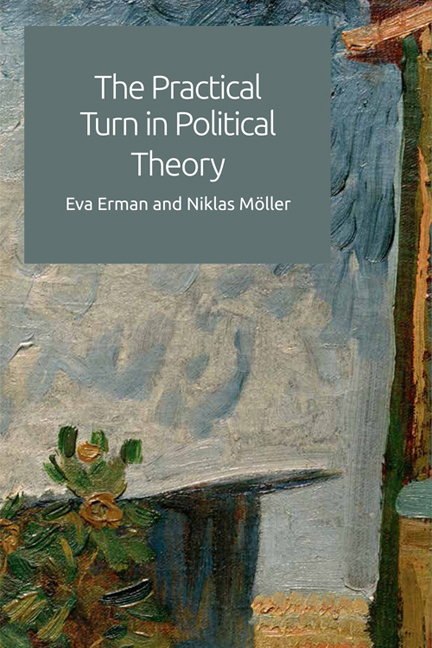2 - Practices and Principles in Current Debates
Published online by Cambridge University Press: 04 May 2021
Summary
This chapter surveys the renewed interest in social and political practices in recent years’ political theory and situates the overall research question dealt with in the book – What role should social and political practices play in the justification of normative political principles? – in five current debates in political theory. It describes the main controversies in each debate, discusses the common grounds and concerns that have motivated the volume, as well as gives examples of the different kinds of constraints on principles suggested in this literature, which will be treated in detail in Chapters 3–6.
THE DEBATES
In recent years, an intensified discussion about the role of normative ideals has re-emerged primarily in the post-Rawlsian literature. What often goes under the heading of ‘ideal theory’, represented by liberal theorists like John Rawls and Ronald Dworkin, has increasingly become perceived as suspicious by so-called ‘non-ideal theorists’ (Mills 2005; Farrelly 2007). It has become a label for different theories involving ‘idealistic’ assumptions, such as theories involving idealisations, utopian theories presuming no or very permissive feasibility constraints, and end-state theories setting out a long-term goal for institutional reform (Valentini 2012, 2017; Rawls 1971; Cohen 2003; Simmons 2010). Non-ideal theorists maintain that ideal theory under any of those construals is too far removed from the concerns of real societies to be of much use in the real world. Instead, it is argued that normative theorising must be much more deeply integrated with the empirical reality of the society and that political theory at large should take much more seriously the non-ideal circumstances consisting of relations of domination and power under which normative ideals and principles are supposed to be applied (Erman and Möller 2013: 19).
Rather than assuming that people have the will and motivation to follow principles of justice, like Dworkin's theory of equality of resources, or assuming a society inhabited by fully capable adults living under favourable conditions, like Rawls’ theory of justice, political theorists favouring non-ideal theory argue that we must carefully study the empirical reality of the society when we derive normative principles (Carens 2000). According to Colin Farrelly, for example, even more moderate ideal theories, such as Rawls’ ‘realistic utopia’, are inherently flawed because they neglect the fact that trade-offs between values or ideal conditions unavoidably have to be made under nonideal circumstances.
Information
- Type
- Chapter
- Information
- The Practical Turn in Political Theory , pp. 9 - 27Publisher: Edinburgh University PressPrint publication year: 2018
